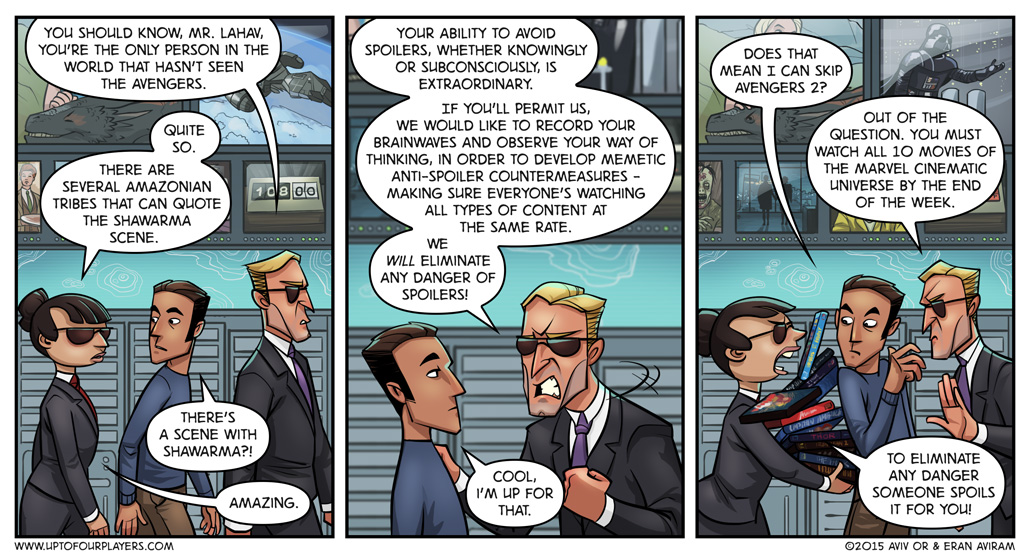Eran
While an anti-spoiler operation such as S.H.H.H doesn’t exist in the real world, I think the rise of data availability – the fact that these days any pop-culture information is a Wiki search away – brought about some accepted rules of behaviour regarding the prevention of loss of worthy personal experiences. Or in other words, we’ve become better at not spoiling for each other.
I mean, even the official spoiler rules video (by CollegeHumor) is now three years old. Today, there really is no need for such a video, since these rules have been accepted into the culture. Well, the general geeky culture and its surroundings, anyway; But it’s still quite probable that even your mother knows its important not to spoil a watching experience for others – a kind of respect toward the TV medium that up until the 90′ was held mostly for books or a few high-profile movies. It’s also not coincidental that Patreon was founded just under two years ago, since it’s the next logical step in the rising appreciation toward high quality content. As a content creator – and consumer! – I’m very glad to see this rising trend.
Wait until we get back to computer and board games, I’ve got a ton of things to say about the rising appreciation to those, as well.
Aviv
The concept of spoilers is well ingrained into our culture by now, but opinions still vary on where we draw the line between spoiler and fair game.
One issue is that of timing: How old does a piece of content have to be before it’s okay to talk about it freely? Can we all agree that it’s fine to discuss the end of Citizen Kane, from 1941? How about the Sixth Sense, from 1999? TV poses that question on a weekly basis: how long after a new episode’s aired can you spoil it? Especially nowadays, with services that let you watch at your convenience, there’s not really a fixed point where everyone “must’ve seen it already”. (Okay, so we do need S.H.H.H. – Eran)
Another issue is defining exactly what constitutes a spoiler. For some people it’s only the jaw-dropping twist, that “I never saw it coming” payoff at the end; for others it’s every major plot event (and then, what’s considered “major”?). For the especially scrupulous, something as seemingly vague as “oh, you won’t BELIEVE what happens at the end of that episode!” sullies the clean slate of their watching experience. Personally, I even like to have special guest stars kept as a surprise.
It’s hard – if not impossible – to define clear-cut rules about spoilers. However, like in many other areas of human interaction, the solution is fairly simple: don’t be a dick. It doesn’t matter how old a TV show is, or how insignificant a plot twist was in your opinion; if the person next to you asks you not to spoil it for them, then…you know, just don’t.




